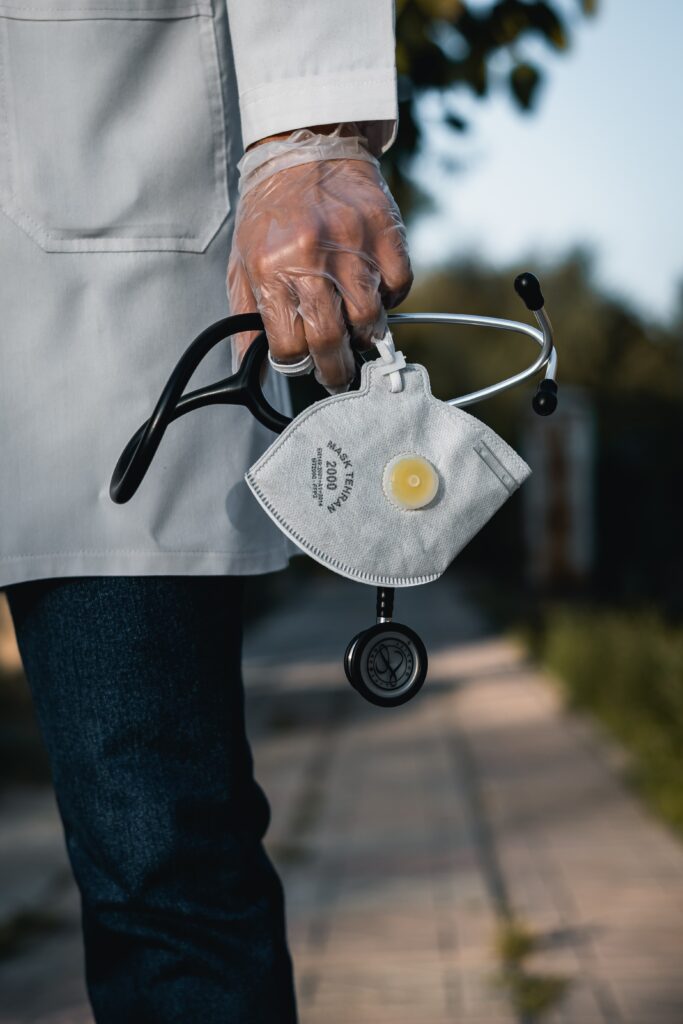
By Jeff Stickle, Senior Associate
April 1, 2020
During the current public health emergency, and the resultant response of a magnitude not seen since polio outbreaks in the 1940’s, employees and employers both are facing unique challenges, some of which may come with serious workers’ compensation consequences. Many “essential” employers remain open, potentially subjecting their employees to exposure to the virus, while others have suddenly found themselves adopting telework schemes if they have any hope of weathering the storm economically. Both of these situations present workers’ compensation challenges.
Coronavirus as a potentially compensable accidental injury or occupational disease
Under normal circumstances, contracting an illness that is common to the general population, even at work, is not compensable. Setting aside the challenging burden of proving that the exposure occurred at work, as opposed to elsewhere, the Courts have not viewed these cases favorably. In Davis v. Dyncorp, Maryland’s highest courtreiterated a long-held principle that: “[T]he [Workers’ Compensation] Act is designed to provide compensation to workers injured by the effects of industry,” and therefore, “the definition of occupational disease should not be read too loosely … while a claimant might prove that a common cold was contracted in the workplace and that lost time resulted, compensation for that occurrence would far exceed the scope of remedy contemplated by the General Assembly.” (citation omitted)[i]
However, these are not normal circumstances. If an employee in an “essential” occupation is exposed to and/or contracts coronavirus, it is likely that his claims for workers’ compensation benefits would be meritorious and potentially compensable. By way of Governor Hogan’s Executive Order finding certain positions “essential,” there is a strong argument that an essential employee’s continued and specific exposure to coronavirus (while others are “sheltering in place”) would meet the burden of establishing compensability as set forth in the Maryland Code, which provides that the “disablement is either due to the nature of an employment in which hazards of the occupational disease exist, or the disease has manifestations that are consistent with those known to result from exposure to a biological… agent that is attributable to the employee’s type of employment….”[ii] This would be particularly true in occupations where employees, by the very nature of their job, are specifically exposed by assisting those with coronavirus (for example, medical professionals and staff, EMS, and police officers).
It is also likely that the Governor’s Order (shuttering other businesses and encouraging “social distancing”) would make causation more easily provable by process of eliminating other possible sources of the virus. Again, this burden would be easily met for those in professions which, by their very nature, are placed in harm’s way.
As with any other “occupational disease,” a disablement would be required, so mere exposure would not meet the requirements of occupational disease. However, if an employee has been exposed, testing and monitoring could still be found compensable as an “accidental injury.” Such a claim would be similar to the claim of a police officer, EMT, or corrections officer who is exposed to bodily fluid or stuck with a needle. In such claims, while one hopes that no disease manifests itself the interim screening for disease likely would be compensable.
With the increased risk to essential employees, we strongly encourage that employees take, and employers offer, all CDC recommended precautions, which can be found at https://www.cdc.gov/coronavirus/2019-ncov/prepare/prevention.html. We similarly encourage employees to take and employers to offer appropriate PPE to all medical and public safety personnel.
Telework presents new challenges to workplace safety.
Employers often spend great sums of time and money to ensure that their facilities, equipment, and other workplace conditions are safe for the use of their employees. Many businesses that have been forced to suddenly turn to telework, or close shop entirely, have opted for the former and now are rather suddenly faced with home-based workforces. Those home offices, unfortunately, have not been screened for the same safety considerations, but are still the employer’s responsibility for workers’ compensation purposes, as they are de facto places of employment.
Last year, the Court of Special Appeals established a three-part test to determine whether an employee’s home was considered a “work site” for the purposes of the Workers’ Compensation Act, with the following three factors to be evaluated:
(1) the quantity and regularity of work performed at home;
(2) the presence of work equipment at home; and
(3) the special circumstances of the employment rendering it necessary, and not merely personally convenient, to work at home. [iii]
The Court also emphasized that under the third factor (above): “the fact-finder should also consider whether the employer acquiesced to the employee’s use of his or her home as a work site, or reasonably should have known the employee was regularly using the home as a work site.”[iv] With the current pandemic, it is likely that the Commission will view the third factor as controlling, given the employer’s interest in having telework in lieu of no work product at all.
We recommend that you keep in mind the following considerations: Once a home work place is established, compensability may not be limited to injuries that simply occur while sitting at one’s desk. Much as an employee at the usual place of business who is injured on a regular lunch break, a trip to the bathroom, or trip and fall in the hall could receive compensation, so too could an employee performing the same activities at home. Whether such an injury is compensable will be viewed in the light of the “positional risk” test. That test asks “whether the injury would have been sustained, ‘but for’ the fact that the conditions and obligations of employment placed the employee where the injury occurred.”[v] Common household injuries, such as slipping in a wet bathroom on a toilet break, tripping over a poorly-timed cat while walking to the printer, or getting an electric shock while plugging a computer monitor into an overloaded power strip, may be found compensable.
For these reasons, much as employees should take care to have safe workspaces at home, employers too should do what is possible to ensure that employees are working from safe spaces, with safe equipment. While home office inspections are probably not practical in light of the current emergency, employers should set forth specific telework rules governing workspaces, equipment, and acceptable breaks and deviations. Employers should also ensure that employees have quality equipment available to them at home.
McCarthy Wilson deeply appreciates your continued trust and we
sincerely wish you continued health through this crisis. Please do not hesitate
to call us with any legal question in this or any other subject area, and as
always, it would be our pleasure to assist you.
[i] Davis v. Dyncorp, 336 Md. 226, 235 (1994).
[ii] Davis, 336 Md.at 235-236, citing Md. Code, Labor & Employment §9-502.
[iii] Schwan Food Co. v. Frederick, 241 Md.App. 628, 662 (2019). Mr. Frederick worked from home and during the day visited his various accounts in his personal car. On the day of his accident, he intended to drop his child at day care and then visit his first account. While still in the driveway, he slipped and fell on ice.
[iv] Id.
[v] See Mulready v. University Research Corp., 360 Md. 51 (2000). See also Livering v. Richardson’s Restaurant, 374 Md. 566 (2003); Gravette v. Visual Aids Electronics, 216 Md.App. 686 (2014); and Roberts v. Montgomery County, 436 Md. 591 (2014).

